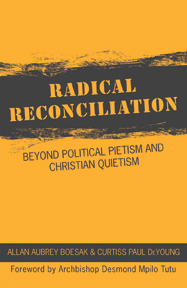
It seems easy. So easy we can almost brush it off. Smile approvingly at the Sunday School teacher seated across the aisle from us in worship, and check one more thing off our spiritual to-do-list. Welcome little children? Done. We might ask ourselves, “How dense could these power grubbing disciples have been to miss so simple a point as this?”
But take a look across that same aisle once again… If your church is like many, there may be an usher giving a mother a dirty look as she walks her small child to the bathroom. Or a father putting his finger to his lip, afraid that his toddler’s whispers might disrupt someone. Or maybe a middle-aged gentleman checking the church’s giving record, calculating in his head what percent of the church’s income comes from his check. Or a young woman dressed just so, glancing at a hand mirror to check her make up….
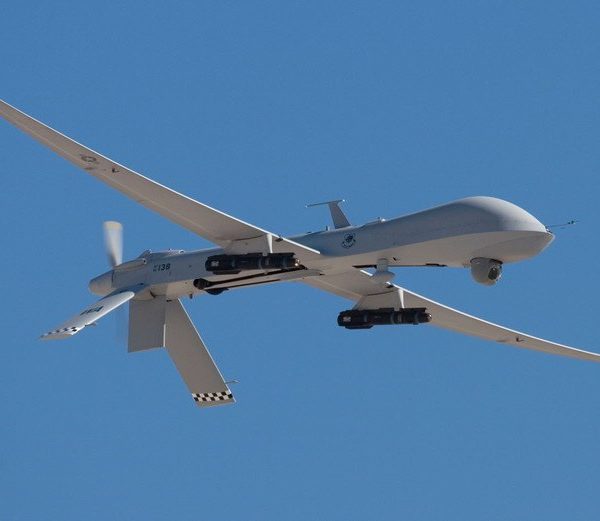
The increasing use of drone warfare under the Obama administration represents an attempt to maintain the concept of “unlawful combatant” while avoiding the publicity associated with Bush-era policies. This policy is a failed attempt to hide the modern state’s inability to adequately deal with global terrorism.
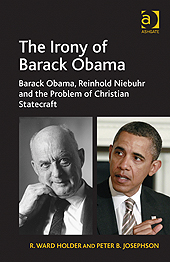
In our last post, we noted that Barack Obama was the willing victim of a particularly delicious moment of irony. The very framework that has given sophistication and moral purpose to his governing – a Niebuhrian Christian realism – could cost him the 2012 election. While Christian realism allows a statesmanlike distance between the goals that can actually be achieved and the pretensions to virtue and excellence that may be desired, very few in the American electorate wish to hear about that. In other words, to win American elections, one must be a cheerleader, or a political evangelist.
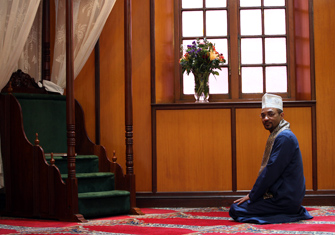
The Claremont Main Road Masjid joins the Libyan People and Muslims all over the world in unequivocally condemning the killing of U.S. Ambassador to Libya, J. Christopher Stevens, and three of his staff members. The sanctity of human life is a supreme value in Islam and nothing is worth the cost of a human life. Such heinous acts of murder and violence are dishonorable and betray any expression of faith in Islam….

There is a sense when one steps into the produce section at the Whole Foods that one has entered a sacred space. The delicate ambiance created by the well-tuned lights and the gentle purr of background music cloaks the organic kale in an almost mystical aurora. Like a church service, Whole Food’s shoppers dress for the experience, donning bright shades of Yoga pants, organic slippers made with bamboo reeds, or any locally-made organic cotton tee—in a concerted effort to show the completeness of their healthy and ecologically-sensitive lifestyle. Moreover, when they reach the checkout line and fork over what for many normal folks amounts to a whole paycheck, the acolytes gently absorb this small sacrifice as doing their part for the environment and their bodies….

The Old Testament lection for this week from Isaiah 50 is one of the “Suffering Servant Songs,” (SSS) which, though there is nothing explicitly messianic in many of them, early Christianity nonetheless read as prophecies of Jesus. As George E. Nicklesburg demonstrated in a path-breaking article more than three decades ago in the Harvard Theological Review, the Suffering Servant wasV an important literary motif to which Israel returned repeatedly in an effort to make sense of its status as subordinate state in the larger geopolitical world in which was situated. Characters such as Joseph, Esther, and Daniel represented models of proper behavior and deportment on the part of Jews living in an alien moral universe fraught with everything from the seductive suggestions of compromise to the existential threats of extermination by the foreign powers which dominated them for so many centuries, first as the suzerain of the Israelites and then later, after 587, as their conquerors. The SSS are thus the poetic and prophetic complement to the narrative accounts of the righteous sufferers….
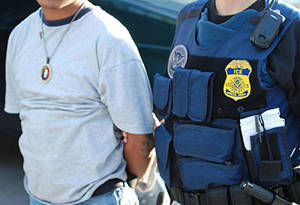
The record number of deportations under the Obama administration and the shift in enforcement strategy from worksite raids to isolated, yet more numerous, detentions is a symptom of a crisis faced by the modern state in an increasingly globalized economy. The state seeks to hide the coercion used to sustain the social imaginary now threatened by a changing world.

My post, “Two American Dreams and One Economic Reality,” looked at the debate about American values initiated by President Obama’s now famous quote: “You didn’t build that.” I argued that the radical individualism embodied by the Republican outrage against this phrase is consistent with neither Christian faith nor economic reality. I am proud of that essay. I think it provided a clear sense of why my Christian faith leads me to support the Democratic Party. But, some of my friends and colleagues pushed back against it pretty hard. They were concerned that my rhetoric of grace and gratitude, my vision of God’s economy, did not quite fit their experience of President Obama or the Democratic Party over the past four years. The disillusionment of these faithful Christians and good Americans is understandable, but my fear is that the fact that Barack Obama is not the Messiah may threaten his very limited but very real accomplishments in both international and domestic affairs….
